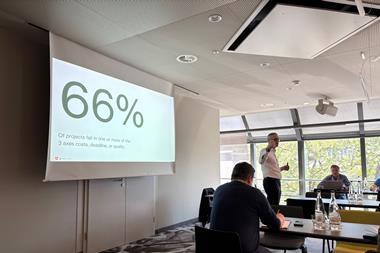Dave Fisher discusses how UK business would suffer if organisations were without mobile working
The issue of laptop loss really should have become tired by now. Debate has been ongoing for several years, ever since the first organisations confessed to misplacing devices containing sensitive information. The only reason it continues is because the problem has actually become more prevalent than ever. Greater awareness has not led to increased security, while each year has seen a further rise in the number of laptops in use.
Every time another laptop disappears into the ether (or more probably, into a criminal’s car boot) another commentator will claim that laptops simply should not be allowed to contain any confidential data. Now I’d argue this is the issue that is becoming tired. After all, just imagine for a second what an outright ban would actually mean for organisations.
For example, many companies, particularly those in the vibrant UK service industry, require their staff to bill time to clients in order to turn a profit. These organisations employ large numbers of consultants that are continually on the move from one office to the next, spending countless hours each year travelling the country or sitting around at stations and airports. Prevent these employees from accessing sensitive data – i.e. the majority of data concerning their clients – and you could easily halve their productivity.
The same principles can be applied to sales executives. They don’t win major accounts by sitting around in an office – they make the deals in-person at the customer’s premises, drawing upon presentations, PDFs, pricing spreadsheets and countless other electronic documents that they’ll have to hand. Remove the laptop and you remove their ability to strike while the iron’s hot.
Many mobile workers prove their worth through the ability to resolve customer issues on-site, as and when they’re brought up. If they can no longer carry customer data, this avenue is closed to them – many issues will now require a trip back to the office to retrieve the necessary information, before organising a follow up visit or call. Again, it will hamper productivity, reflect badly on the company, and when applied across the board, it will doubtless lead to many organisations abandoning their mobile working strategies altogether.
“It's clear that reducing laptops to second-class device status could seriously inhibit UK organisations.
Consider the implications for the UK workforce in general. In 2005 there were 2.4m teleworkers in the UK. More employees want the opportunity to work flexibly, in order to meet their personal as well as geographic needs, while equally, more organisations recognise the advantages of this, in terms of better serving their customers as well as being able to recruit from a wider labour pool.
It’s clear that reducing laptops to second-class device status could seriously inhibit UK organisations. While some onlookers may object to employees carrying highly confidential information, the fact is that when equipped with the right technology, these workers are no cause for alarm. It’s all about who controls the laptop – the employee or the employee’s IT department? Providing it’s the latter, once a laptop is stolen the IT department can lock it down remotely and prevent information access. If necessary, the hard drive can be wiped altogether.
Monitoring and controlling devices in this way, companies really don’t have to view laptops as a potential security risk. In fact, for many organisations, the real risk would be attempting to compete in the 21st Century business world without them.
Dave Fisher is business development manager at Alcatel-Lucent




















No comments yet